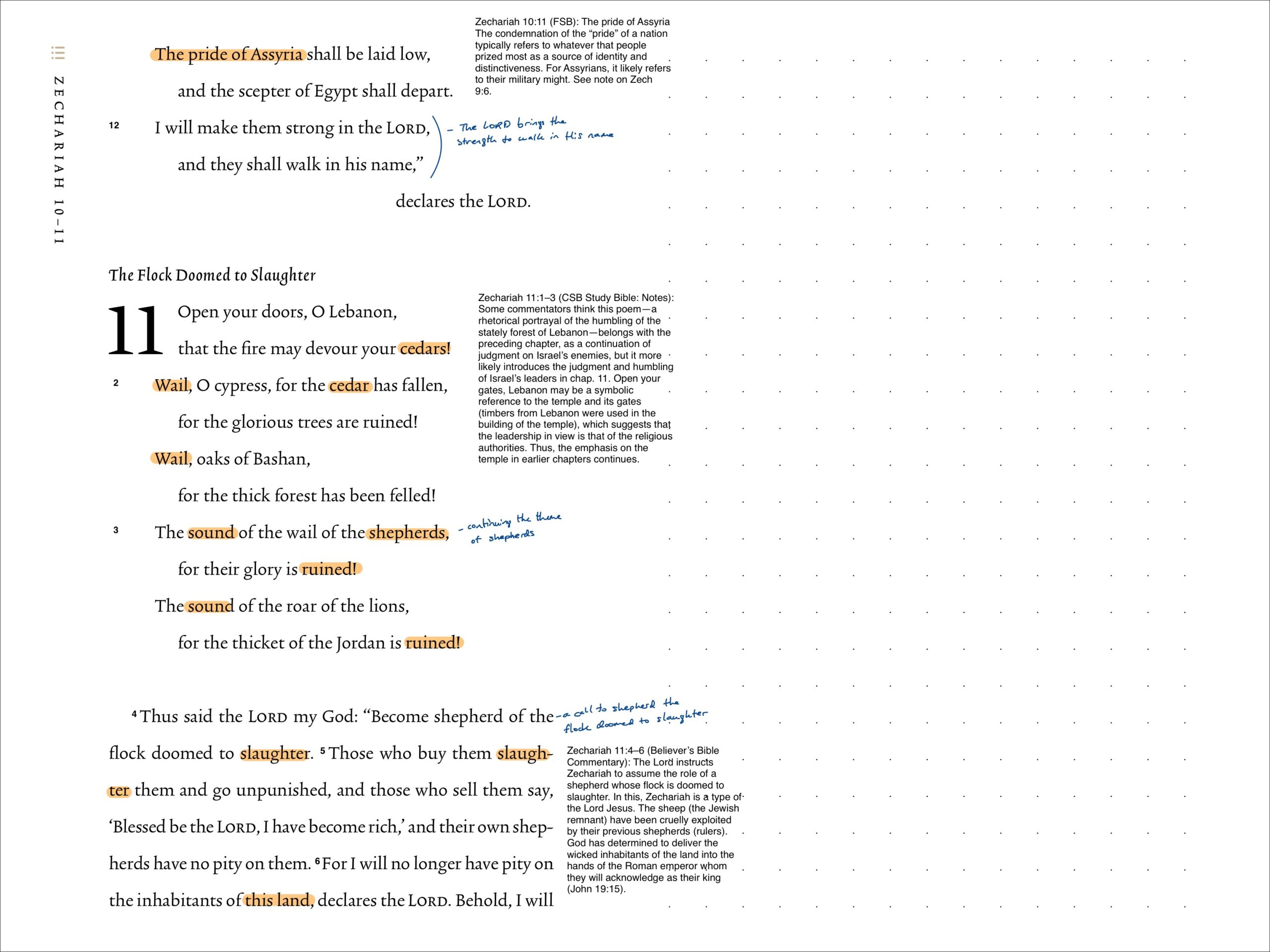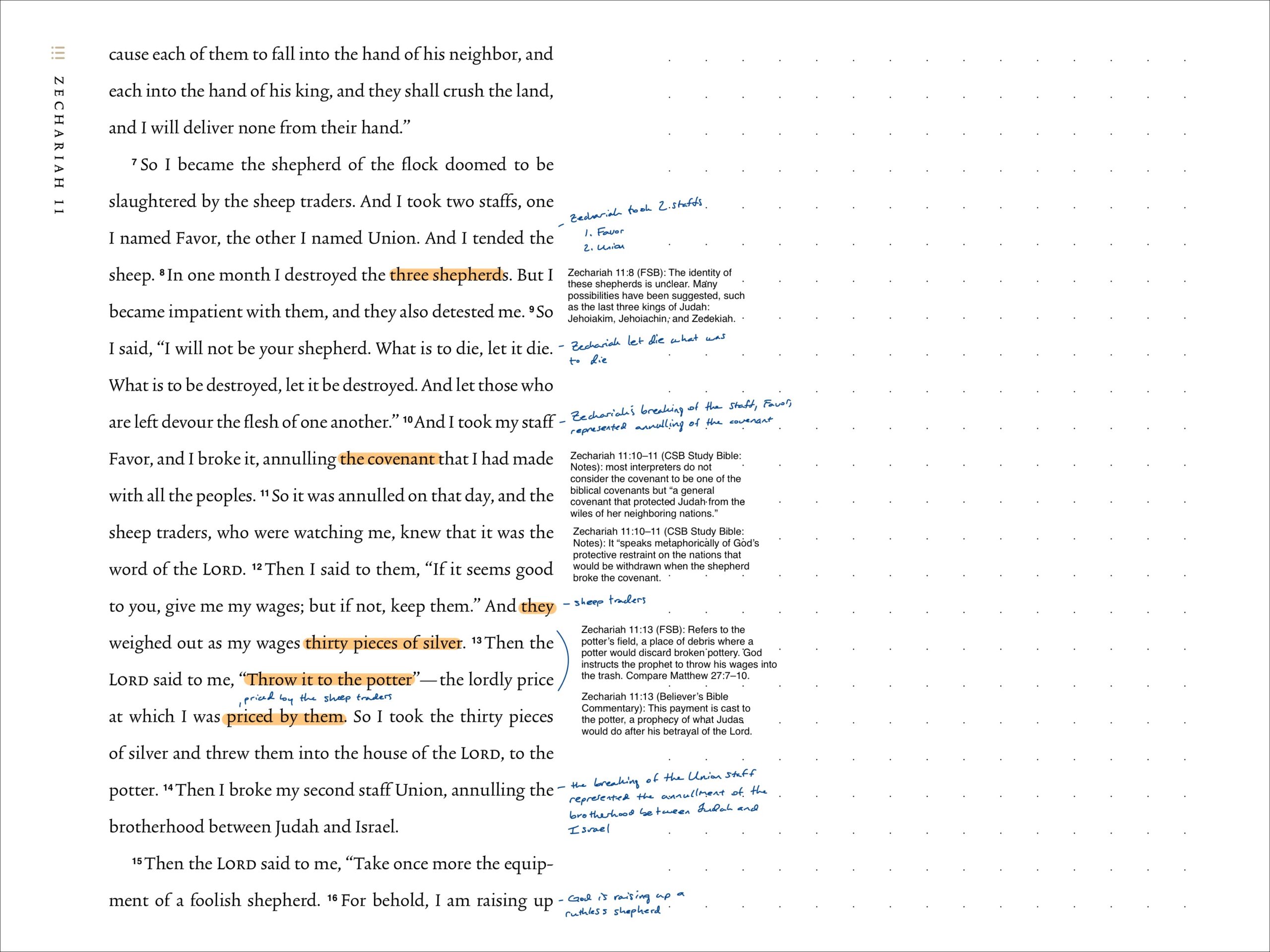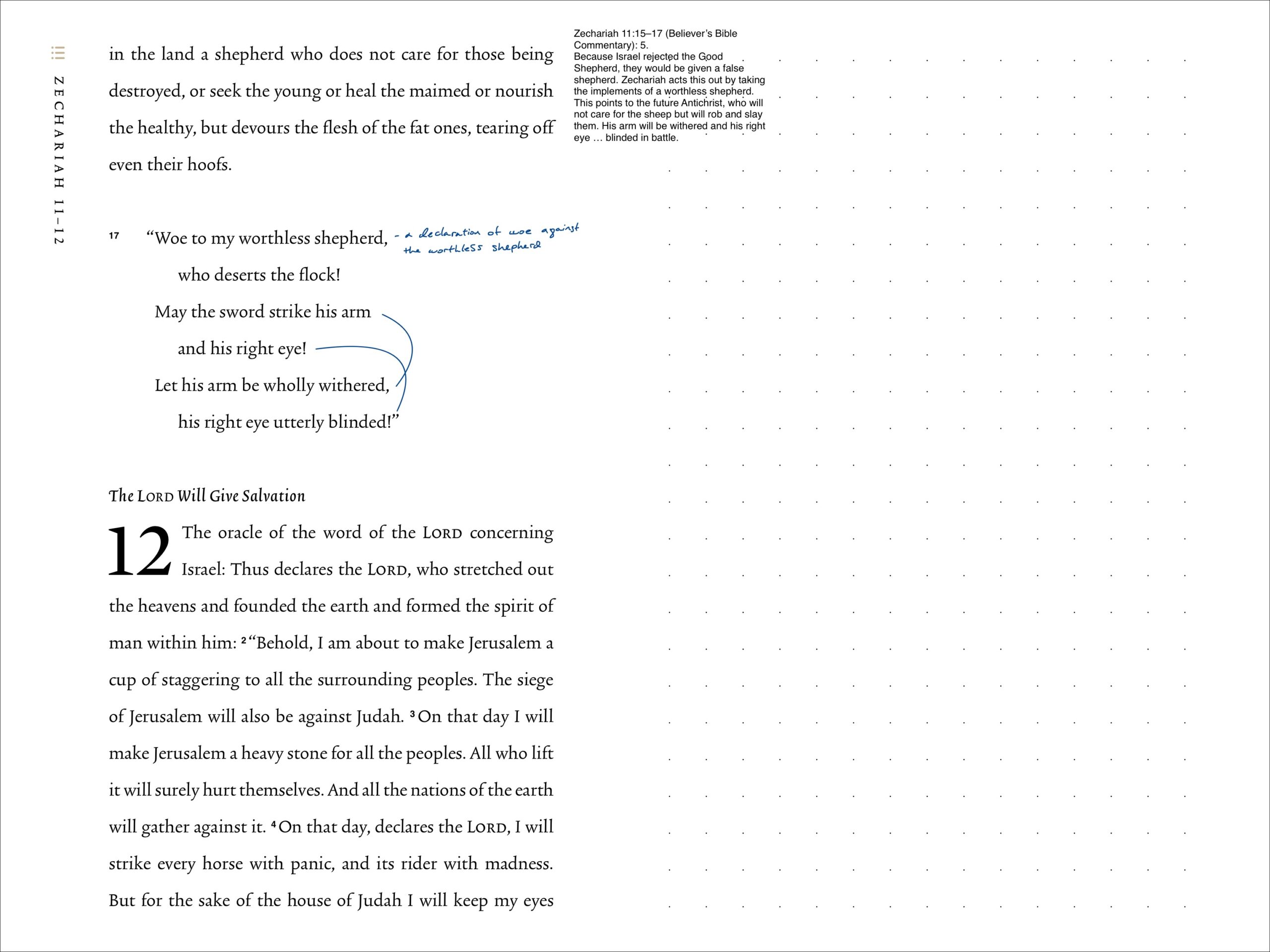| Date | Version | Reading Plan |
|---|---|---|
| @December 23, 2023 | ESV (2016) | ESV Prophets Plan 2023 |
Pericopes
- The Flock Doomed to Slaughter
Notes/Application
The chapter opens with what some believe to be a poem by Zecharaiah of the judgment of Israel’s enemies. The Lord calls on Zechariah to become the shepherd “of a flock doomed to slaughter.” (Zech. 11:4), symbolizing the Israelites doom by conquering nations. Zechariah followed the command, became the shepherd of the doomed flock and took up two staffs: Favor and Union. He let die what was to die and broke the first staff, Favor, representing an annulment of the covenant protecting Judah from neighboring nations. The sheep traders gave Zechariah his wages of “thirty pieces of silver” and the LORD told him to “Throw it to the potter” (Zech. 11:13), a prophecy of Judas’ actions after his betrayal of Jesus (Matt. 27:7-10). Zechariah then broke the other staff, Union, “annulling the brotherhood between Judah and Israel.” (Zech. 11:14). God would raise up a ruthless shepherd “who does not care for those being destroyed” (Zech. 11:16), pointing to the future antichrist, and declared a woe against this worthless shepherd.
Most interesting in today’s reading was the thirty pieces of silver thrown to the potter in Zech. 11:12-13 as there are some fascinating facts surrounding this. First was that the thirty pieces of silver was the legal compensation for the loss of a slave (Exod. 21:32). Next was that the potter’s field was a place of debris where a potter would discard broken pottery. God’s instruction for Zechariah was essentially to throw his wages in the trash. This leads to the final notion of Judas’ thirty pieces of silver acquired by his betrayal. Judas later regretted his actions, attempted to return the money but was refused and threw the silver into the temple. The elders took counsel, declared it to be blood money, and used it to purchase a field of pottery refuse into which Judas fell headlong and “his bowels gushed out” (Acts 1:18).
Through the congruence of Zechariah and the later actions of Judas, one cannot help but appreciate God’s infinite creativity in these historical connections. What a joy it is to see this and to be given a part in the most amazing story ever written.
Scripture Journal Notes
Commentaries & Resources Used
- ESV Study Bible. (Wheaton, IL: Crossway, 2008)
- Faithlife Study Bible (Lexham Press, 2016)
- Believer’s Bible Commentary (Thomas Nelson, 2016)
- CSB Study Bible Notes (Holman Bible Publishers, 2017)
- Matthew Henry’s Commentary on the Whole Bible (Guardian Press, 1976)
- The Bible: A Reader’s Guide (Sterling Publishing, 2011)
- The Infographic Bible (Zondervan, 2018)
- ESV Digital Scripture Journal (Crossway, 2019)


